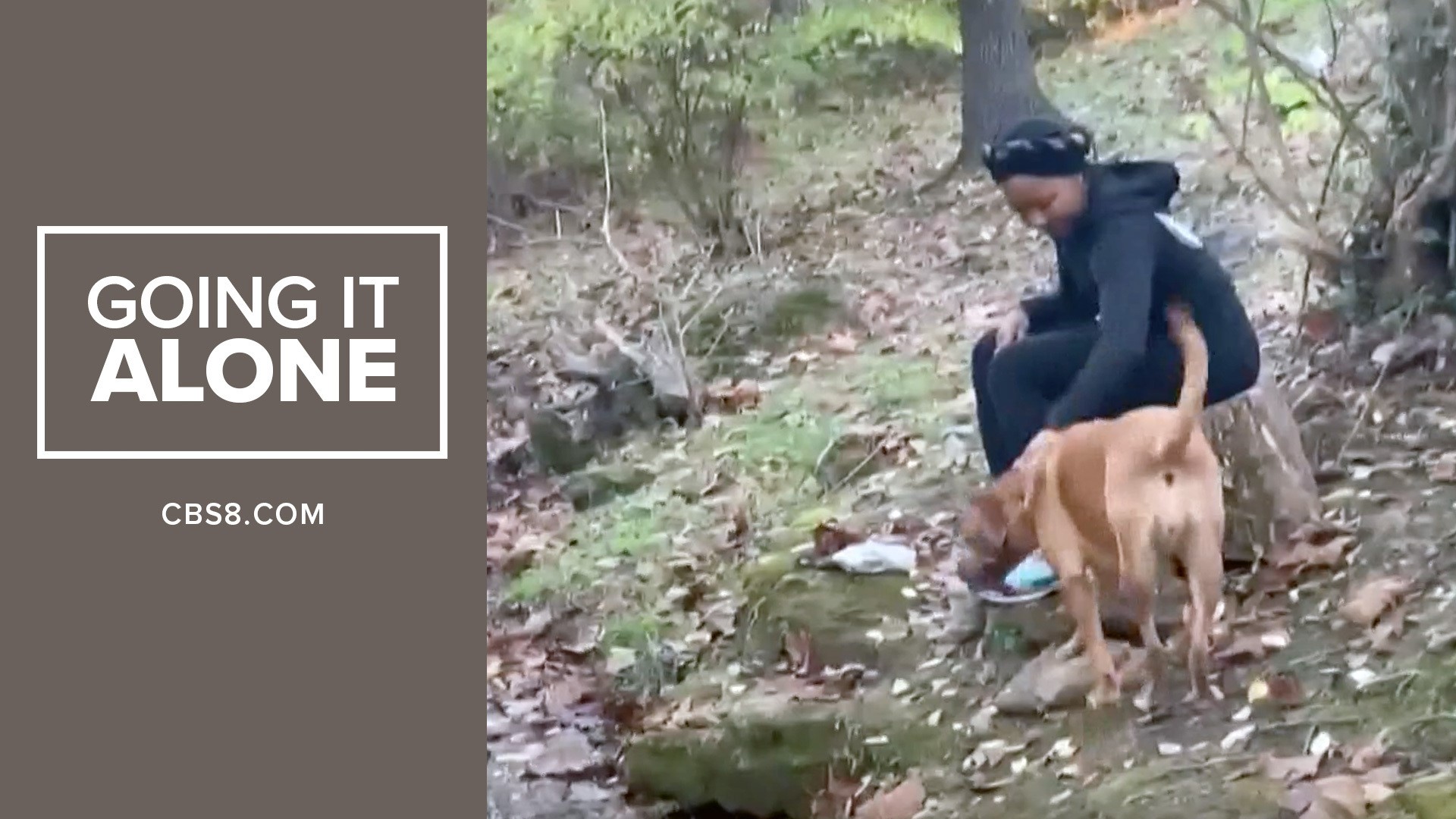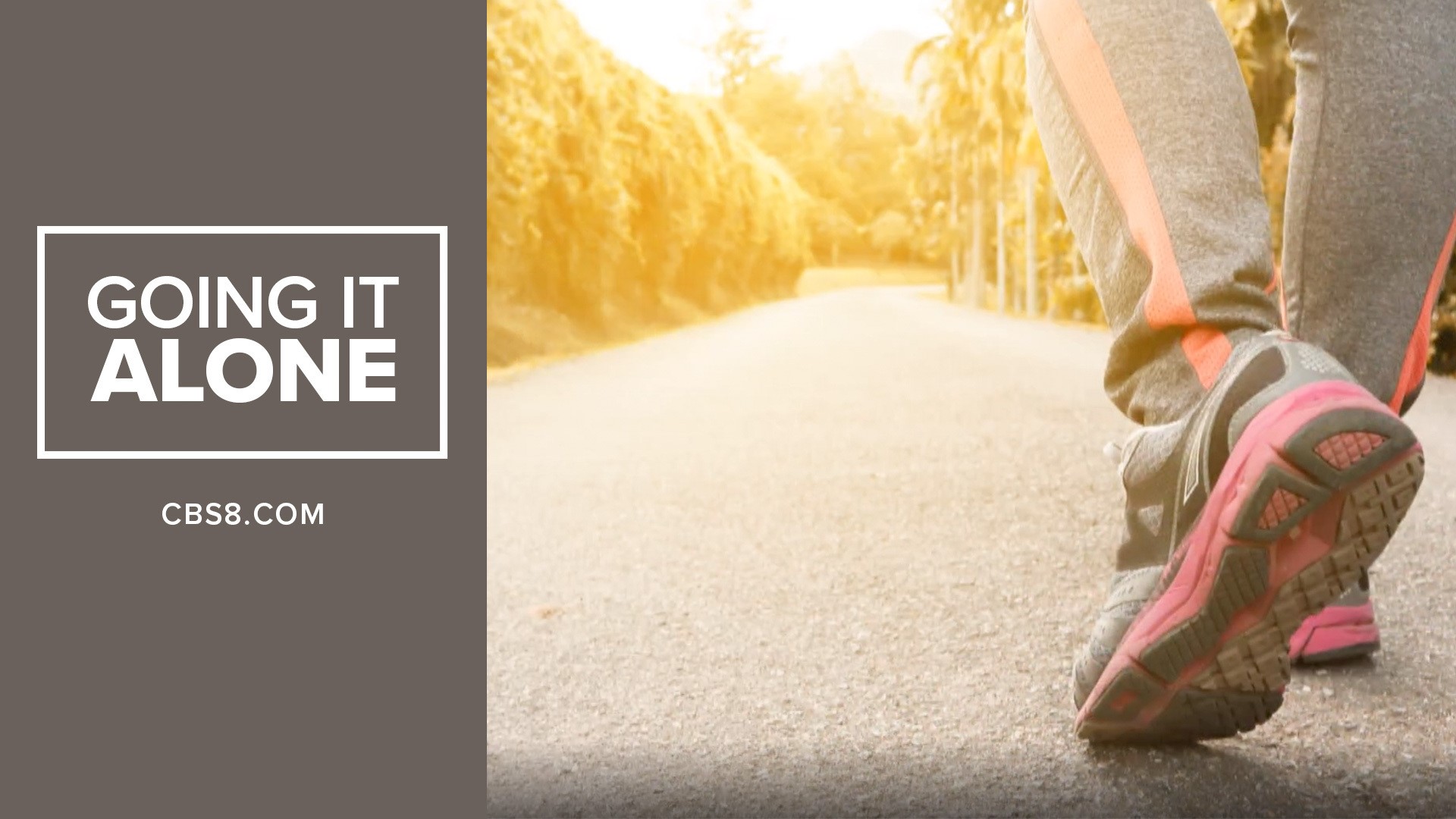SAN DIEGO — Community activists have led protests and rallies for social change but have said this year hit differently. Faced with the challenge of COVID-19, on top of everything else, left many who are expected to be strong feeling anxious, overwhelmed and isolated.
"The world doesn't see, I don't think like the manic side of it, like where you're in your head, your mind's moving like a thousand minutes per second, you know, it's just constantly going, going, going,” said Louisville activist Christie Welch.
Following the deaths of Breonna Taylor and George Floyd, activists across the country mobilized movements.
"When you're out there on the streets, you don't feel protected, you don't really you don't really see the impact that is having on your body,” said Tytianna Wells, a Louisville activist, who wrote a poem for Breonna Taylor.
From Louisville to Minneapolis and even San Diego, community leaders say the felt the pressure.
"Really feeling the pain and the weight of two pandemics, not just mentally but emotionally draining but also financially draining which all contribute to your mental health," said Aeiramique Glass Blake, Generation Justice executive director.
American Psychological Association says 59% of adults say they're taking action against racial injustice, but the grueling work of activism takes a toll.
"Here's the problem with trying to change broken oppressive systems, you're out in the trenches. We're living in a time in our country where a fellow citizen might kill you for what you believe,” said Portland activist Cameron Whitten.
Activist Tasha Williamson says it easy to lose yourself in this kind of work and Black activists seeking therapy has a stigma attached to it.
"We always have to appear strong, we have to look strong, we have to be strong don't cry because girl if you cry, you are going to look weak. What goes on in the home stays in the home is how many of us were raised because that's how our parents were raised and our grandparents were raised,” Williamson said.
Advocates often find talking out the problem can be a challenge when they're typically the ones people turn to for help.
“It's too difficult to just stack, stack and keep stacking eventually you're going to be the one who has a breakdown and then you'll be calling somebody,” said Rev. Shane Harris, CEO of People's Alliance for Justice.
Protesting can leave physical scars. Tasha Williamson says she suffered nerve damage in her wrists after being handcuffed by National City Police following an Earl McNeil protest in 2018.
"That can be a trauma that causes your mental health to mess with you," Williamson said.
Wells says activism for her does cause anxiety, PTSD and depression.
"When I get home, it's even worse because, like, I'm not actively out doing anything,” Welch said.
"There's going to be moments where if you're trying to create peace, you're going to feel guilty because, you know, there's a struggle going on,” said therapist and podcaster Celeste Vicere, who studies the impact activism has on mental health.
Activists in 2020 have expressed increased isolation.
"It can be a very lonely place to be an activist, but the reality is that that experience of isolation is a limited experience, you're going to find community, Whitten said.
What are ways activists cope in a pandemic?
Wells says she writes, and Welch says she sits by the creek in her backyard.
“Self care I think is so extremely important, we have to step back and take care of ourselves became we cannot pour into somebody else if you are empty,” Blake said.
While traveling to meet with George Floyd's family in Minnesota, Rev. Shane Harris came down with coronavirus.
"Look at me I'm a survivor of COVID-19 while I had to survive standing up for people who felt like they're voices weren't heard,” Harris said.
As we close out 2020 and enter into the holiday season, many people are isolated from family and friends because of COVID-19. We will explore the impact of isolation on mental health in our series Going It Alone.
We’d also like to hear from you if you're Going It Alone this holiday season.
If you want to share your story or have us address a specific topic, please send an email to yourstories@kfmb.com and add Going It Alone in the subject line.


